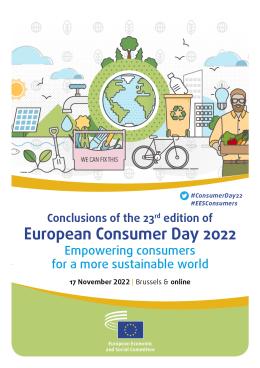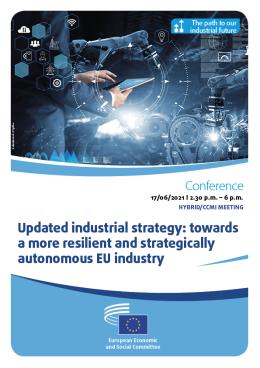European Economic
and Social Committee
Kružno gospodarstvo
EGSO se intenzivno bavi tranzicijom prema kružnom gospodarstvu kao jednim od rješenja za suzbijanje klimatske krize i zaštitu našeg planeta. To je ujedno i odlična prilika za civilno društvo, koje može pridonijeti u sljedećim područjima:
- povećanje konkurentnosti europske industrije;
- promicanje održivog gospodarskog rasta;
- stvaranje novih radnih mjesta.
Model proizvodnje i potrošnje koji funkcionira prema načelu „uzmi – proizvedi – baci”, i koji i dalje prevladava u našem gospodarstvu, ne samo da rezultira traćenjem resursa već i ugrožava borbu protiv klimatskih promjena. Za razliku od linearnog gospodarstva, kružno gospodarstvo temelji se na regeneraciji i obnovi s naglaskom na stvaranju i zadržavanju gospodarske vrijednosti, čime se hvata u koštac s globalnim ekološkim izazovima kao što su klimatske promjene, gubitak biološke raznolikosti i onečišćenje, dok se istovremeno ostvaruje ekonomska korist.
Dobra je vijest da se tranzicija prema kružnom gospodarstvu na terenu već odvija. Dionici iz civilnog društva, uključujući poduzeća, sindikate, akademsku zajednicu i zajednice znanja, organizacije mladih te nevladine organizacije i druge interesne skupine osmišljavaju i provode brojne kružne inicijative na lokalnoj i regionalnoj razini. Olakšavanje primjene kružnih rješenja i preuzimanja vodstva relevantnih dionika najbolja je mogućnost za Europu da ubrza tranziciju prema kružnom gospodarstvu.
Europska platforma dionika kružnog gospodarstva, zajednička inicijativa EGSO-a i Europske komisije, uspostavljena je 2017. godine kako bi se okupila zajednica kružnog gospodarstva u Europi. Platforma, u kojoj vodeću ulogu imaju dionici, podupire tranziciju Europe prema kružnom gospodarstvu promicanjem dijaloga te razmjenom znanja i najboljih praksi.









